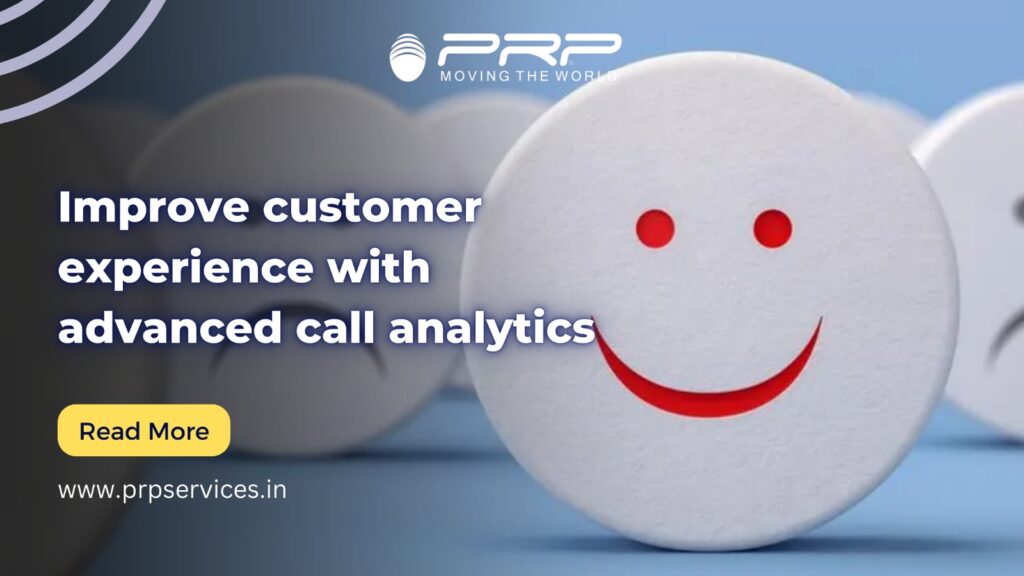Call analytics is a pivotal tool for optimizing call center performance and enhancing customer experience. By transforming raw call records into actionable insights, corporations can make informed choices that drive increased performance and consumer satisfaction. Here’s an in-depth look at what call analytics involves, its benefits, real-world applications, and how PRP Services permit you to leverage this powerful device.
Understanding Call Analytics
Call analytics includes the collection, analysis, and interpretation of data derived from phone calls. Unlike call recording, which focuses on capturing the audio of the call, call analytics zeroes in at the quantitative components of call interactions. This consists of metrics, which include call length, maintenance time, and abandonment charge. By analyzing these data points, businesses can gain precious insights into their call center operations and consumer interactions.
Key Features Call Analytics Metrics
To effectively measure call center performance and customer service quality, it’s essential to focus on the following key metrics:
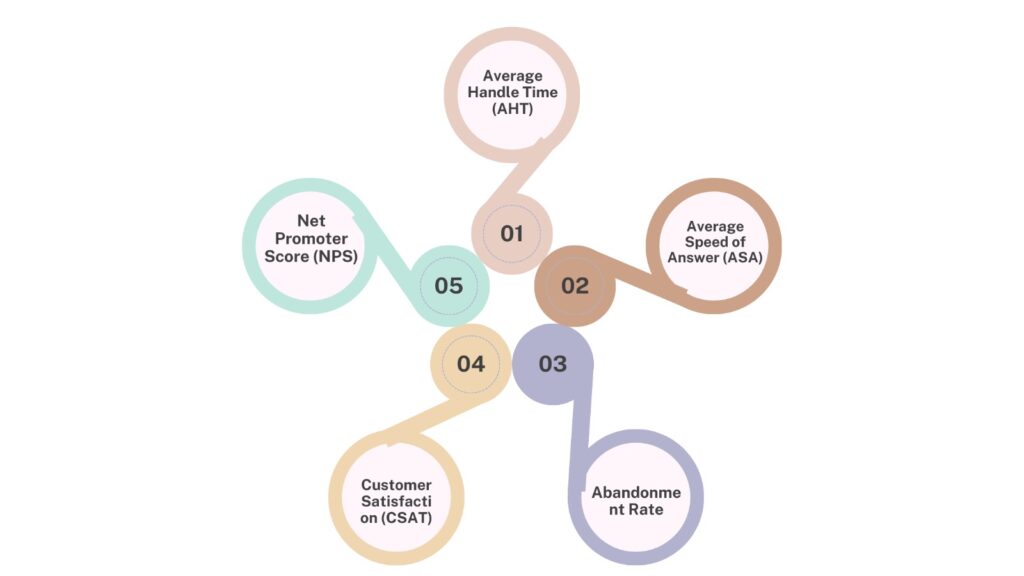
Average Handle Time (AHT)
- Definition: The average duration of a customer interaction, including talk time and after-call work.
- Importance: Helps assess the efficiency of call handling and the effectiveness of support provided. A high AHT might indicate the need for additional training or process improvements.
Average Speed of Answer (ASA)
- Definition: The average time it takes to answer a call after it enters the queue.
- Importance: Reflects how quickly customers are attended to and can impact overall customer satisfaction. A high ASA might suggest the need for more agents or improved call routing.
Abandonment Rate
- Definition: The percentage of callers who hang up before their call is answered.
- Importance: Indicates the effectiveness of call management and queue handling. A high abandonment rate often signals long wait times or issues with call routing.
First Call Resolution (FCR)
- Definition: The percentage of customer issues resolved during the first call.
- Importance: A crucial metric for customer satisfaction and operational efficiency. High FCR rates are typically associated with better service quality and fewer follow-up calls.
Customer Satisfaction (CSAT)
- Definition: A measure of how satisfied customers are with the service they receive.
- Importance: Directly reflects the quality of service and can influence customer loyalty and retention.
Net Promoter Score (NPS)
- Definition: A metric that gauges customer loyalty and the likelihood of recommending the service to others.
- Importance: Provides insights into overall customer sentiment and brand reputation.
Use Call Analytics for Business Growth
Harnessing the power of call analytics can lead to significant improvements across various facets of a business:
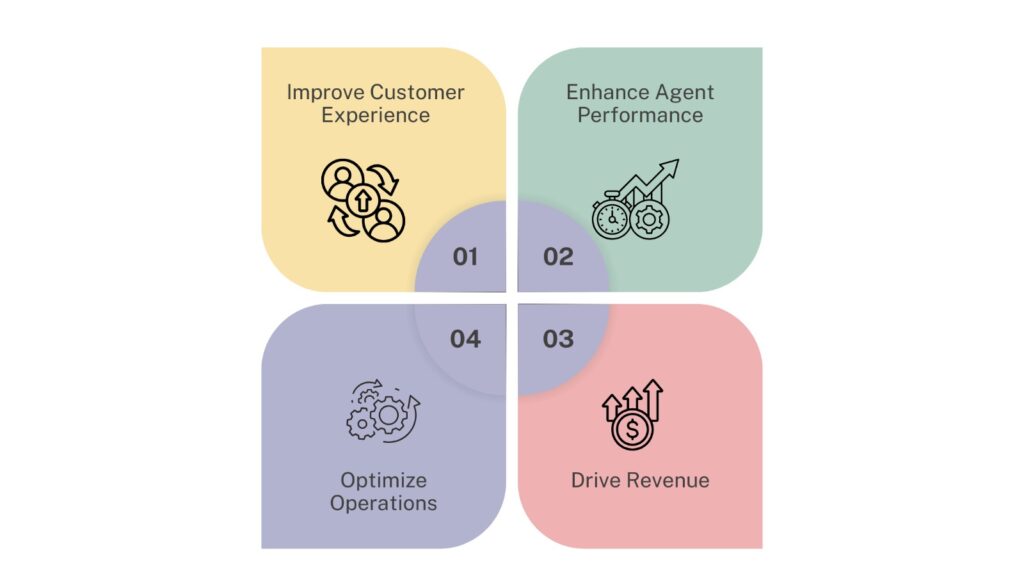
Improve Customer Experience:
- Identify Pain Points: By analyzing call data, businesses can pinpoint common issues and customer frustrations, allowing for targeted improvements.
- Optimize IVR Menus: Streamline interactive voice response (IVR) menus based on data to ensure customers navigate efficiently to the right department.
- Personalize Interactions: Use insights from previous calls to tailor interactions and enhance customer satisfaction.
Enhance Agent Performance
- Set Clear Benchmarks: Establish performance standards based on data to drive agent productivity and effectiveness.
- Identify Training Needs: Use performance metrics to identify areas where agents may require additional training or support.
- Optimize Call Handling: Analyze call handling times and efficiency to improve processes and reduce operational costs.
Optimize Operations
- Forecast Call Volume: Predict future call volumes and adjust staffing levels accordingly to meet demand.
- Improve Call Routing: Enhance call routing strategies to ensure calls are directed to the most appropriate agents or departments.
- Measure Marketing Effectiveness: Evaluate the impact of marketing campaigns on call volume and customer inquiries to refine strategies.
Drive Revenue
- Identify Upselling Opportunities: Analyze call data to uncover opportunities for upselling and cross-selling based on customer interactions.
- Measure Campaign Performance: Track the success of promotional campaigns and adjust tactics based on data-driven insights.
- Calculate Customer Lifetime Value (CLV): Use call data to estimate the long-term value of customers and make informed investment decisions.
Real-World Use Cases
Call analytics can be applied across various industries to drive business success:
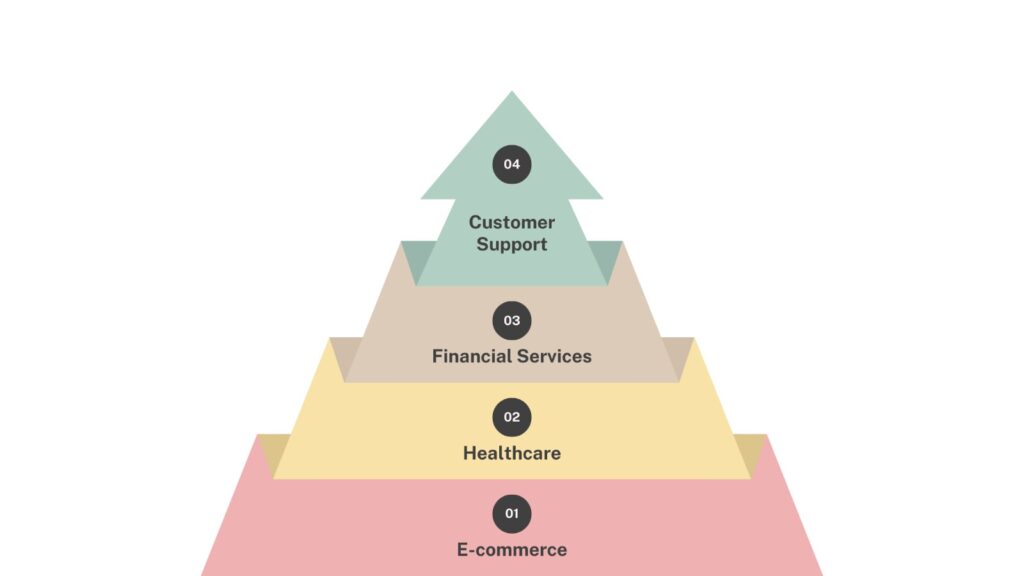
E-commerce
- Analyze Product Issues: Identify recurring product-related problems and address them proactively.
- Optimize Returns Processes: Streamline returns and exchanges based on insights from customer interactions.
- Improve Customer Support: Enhance support quality by analyzing common issues and customer feedback.
Healthcare
- Enhance Patient Experience: Use call data to improve appointment scheduling and patient communication.
- Streamline Scheduling: Optimize appointment booking processes based on call volume and patient needs.
- Manage Medical Records: Integrate call data with electronic health records (EHR) to improve patient management.
Financial Services
- Detect Fraud: Identify unusual call patterns that may indicate fraudulent activity.
- Improve Customer Onboarding: Enhance the onboarding process by analyzing customer interactions and feedback.
- Assess Customer Risk: Use call data to evaluate customer risk profiles and tailor financial products.
Customer Support
- Evaluate Agent Performance: Assess agent effectiveness and identify areas for improvement.
- Identify Training Needs: Use performance data to develop targeted training programs.
- Optimize Call Routing: Refine call routing strategies to ensure efficient handling of customer inquiries.
Overcoming Challenges in Implementing Call Analytics
Implementing call analytics can present several challenges, but these can be addressed with strategic planning:
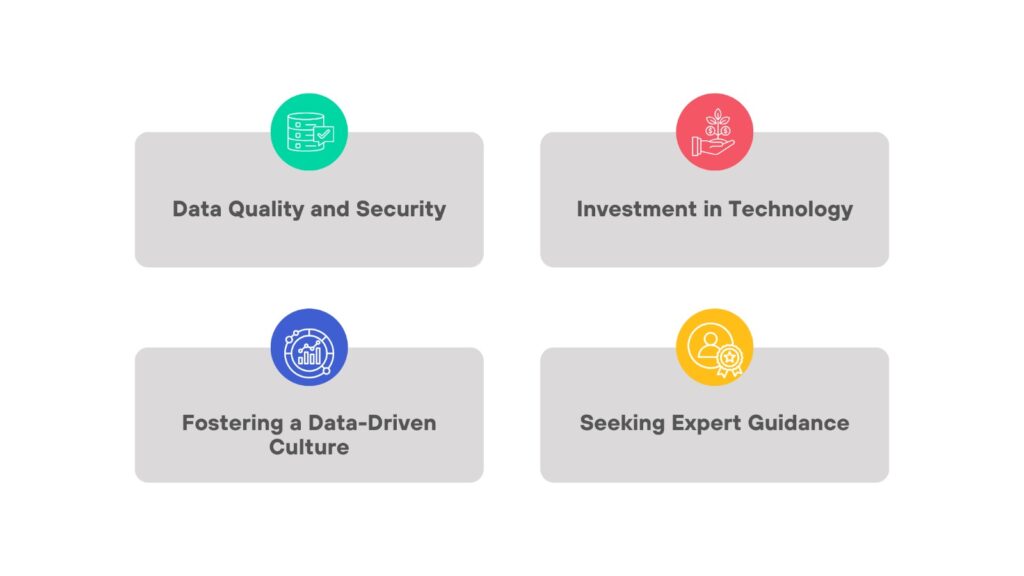
Data Quality and Security
- Prioritize Data Integrity: Ensure data collected is accurate and reliable for meaningful analysis.
- Implement Security Measures: Protect call data with robust security protocols to comply with regulations and maintain customer trust.
Investment in Technology
- Choose the Right Tools: Invest in advanced call analytics tools that meet your business needs and integrate with existing systems.
- Stay Updated: Regularly update your analytics tools to take advantage of new features and improvements.
Help a Data-Driven Culture
- Promote Data Awareness: Encourage a culture that values data-driven decision-making and continuous improvement.
- Provide Training: Equip employees with the skills and knowledge needed to interpret and act on call analytics data.
Seeking Expert Guidance
- Consult Experts: Work with industry experts to navigate complex analytics requirements and implement effective solutions.
PRP Services: Your Partner in Call Analytics
PRP Services offers advanced call analytics solutions designed to help you unlock the full potential of your call data. Our cloud-based platform provides comprehensive insights into call performance, customer behavior, and agent productivity.
Key Features of PRP Services' Call Analytics
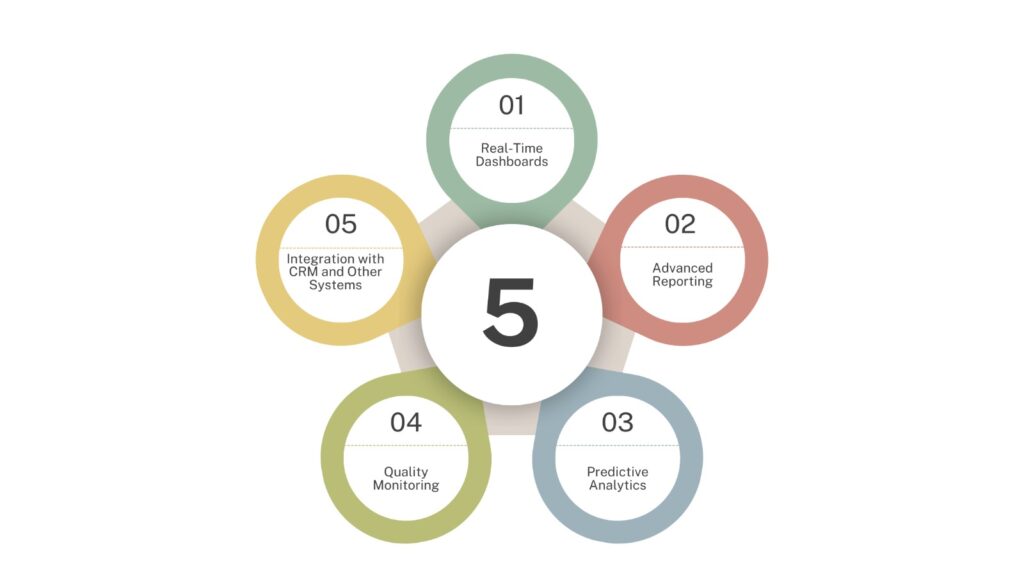
Real-Time Dashboards
- Monitor Key Metrics: Access up-to-the-minute updates on call performance and trends.
- Identify Trends Instantly: Visualize data to spot patterns and anomalies quickly.
Advanced Reporting
- Customized Reports: Generate detailed reports tailored to your specific needs and business objectives.
- In-Depth Analysis: Dive deep into data for comprehensive understanding and strategic planning.
Predictive Analytics
- Forecast Call Volumes: Anticipate future call volumes and adjust staffing levels accordingly.
- Agent Staffing Needs: Predict agent requirements to optimize workforce management.
Quality Monitoring
- Evaluate Call Quality: Assess call quality and identify coaching opportunities to improve service.
- Identify Coaching Needs: Use data to provide targeted feedback and support to agents.
Integration with CRM and Other Systems
- Complete Customer View: Integrate with CRM systems and other business applications for a unified view of customer interactions.
- Enhance Data Utilization: Leverage integrated data to drive more informed decisions and strategies.
Pricing for PRP Services Call Analytics
PRP Services offers flexible pricing plans to accommodate different business needs:
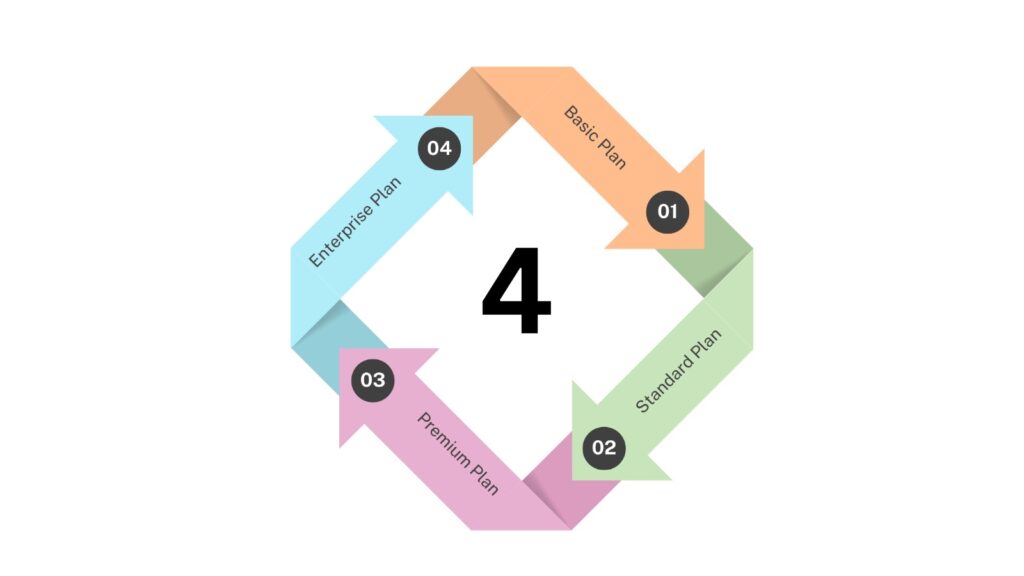
Basic Plan: ₹1,200 per user per month
- Includes essential call tracking and performance metrics.
- Suitable for small businesses or startups.
Standard Plan: ₹2,800 per user per month
- Includes advanced features like real-time dashboards, predictive analytics, and CRM integration.
- Ideal for medium-sized businesses.
Premium Plan: ₹4,500 per user per month
- Offers comprehensive features, including customized reports, quality monitoring, and premium support.
- Designed for large enterprises with complex needs.
Enterprise Plan: Custom pricing
- cut solutions with extensive customization, additional integrations, and dedicated support.
- Perfect for large organizations with specific requirements.
Frequently Asked Questions (FAQs)
Call analytics involves the collection, analysis, and interpretation of data from phone calls, focusing on metrics such as call duration, hold time, and abandonment rate. Unlike call recording, which captures the audio of the call, call analytics examines quantitative aspects to provide actionable insights for improving call center performance and customer satisfaction.
Call analytics can identify common customer issues and pain points, optimize interactive voice response (IVR) menus, and personalize interactions based on previous call data. These insights help businesses make targeted improvements to enhance the overall customer experience.
Important metrics include Average Handle Time (AHT), Average Speed of Answer (ASA), Abandonment Rate, First Call Resolution (FCR), Customer Satisfaction (CSAT), and Net Promoter Score (NPS). These metrics help assess efficiency, service quality, and customer satisfaction.
Businesses can leverage call analytics to identify upselling and cross-selling opportunities, measure the effectiveness of marketing campaigns, and calculate Customer Lifetime Value (CLV). This data-driven approach helps optimize strategies, improve customer interactions, and increase revenue.
Common challenges include ensuring data quality and security, investing in the right technology, fostering a data-driven culture, and seeking expert guidance. PRP Services provides advanced call analytics solutions, specialist support, and comprehensive training to help businesses overcome these challenges and successfully implement call analytics.
Conclusion
Call analytics in cloud telephony provides businesses with invaluable insights to enhance customer experience, optimize operations, and drive growth. By partnering with PRP Services, you can leverage advanced analytics tools and expert support to make data-driven decisions that improve performance and achieve exceptional results.
Ready to unlock the power of your call data? Contact PRP Services today to learn more about our call analytics solutions and find the perfect plan for your business.
Contact Us at 1800-313-5152

